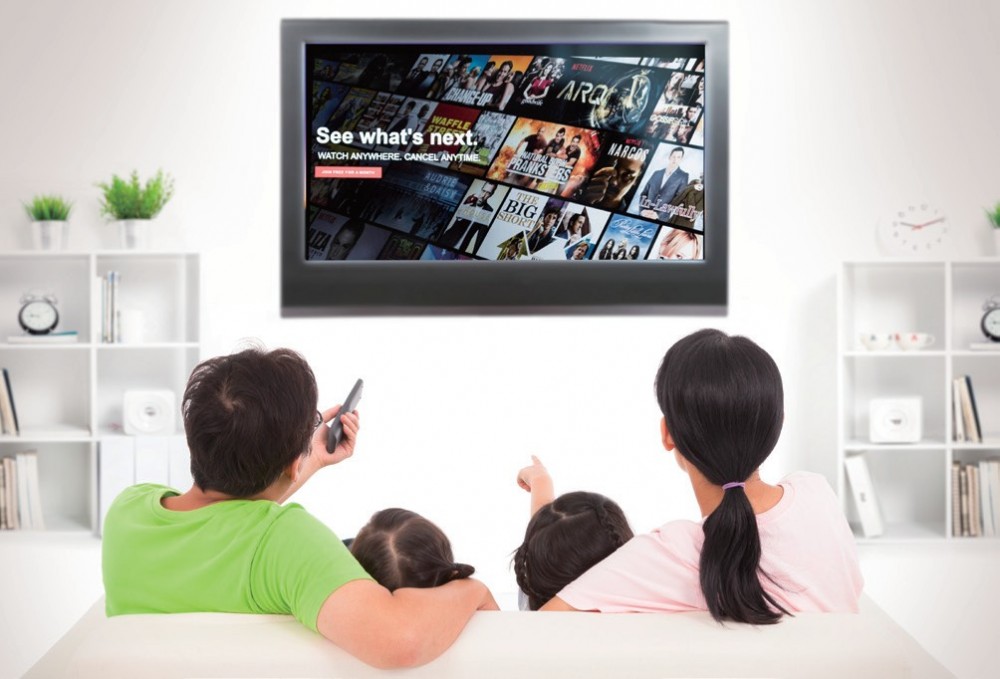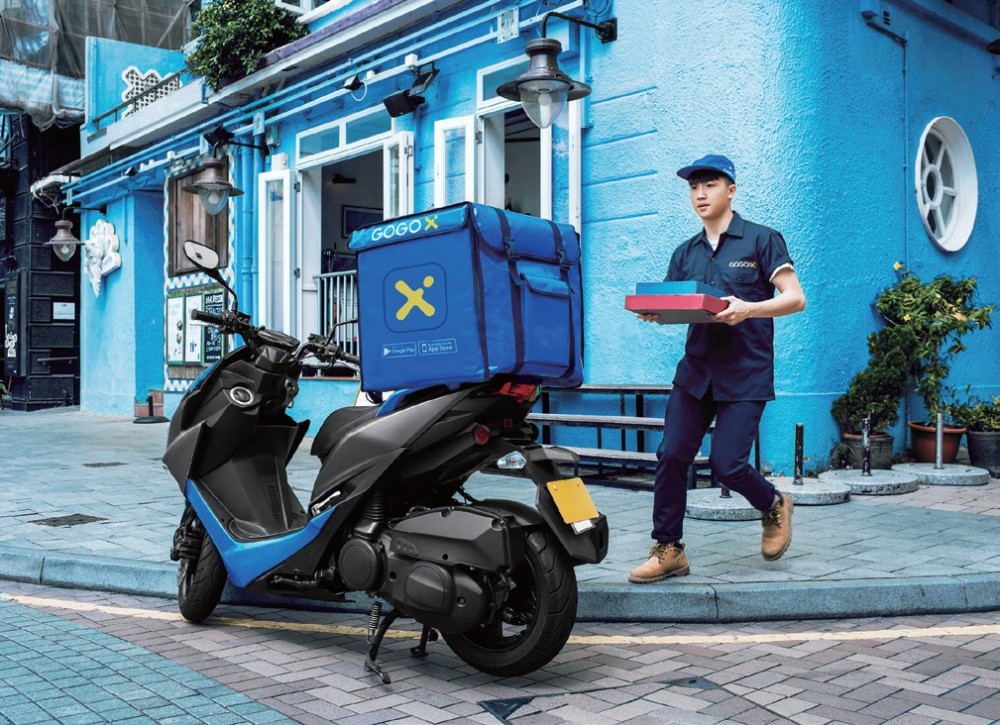A variety of online business models have emergedas people go out less often due to the persistence of COVID-19. In addition to their basic daily needs, people also need entertainment as a diversion from boredom. Therefore, their demand for online shopping, online games and online streaming such as videos and music has greatly increased, driving the “stay-at-home economy” to flourish.
Joseph Leung: COVID-19 Has Accelerated the Development of Digital Entertainment and e-payments
 With the development of the stay-at-home economy, takeaway apps that provide food delivery services are wellpositioned to benefit, while digital entertainment is just as popular. Joseph Leung, Vice Chairman of the Hong Kong Retail Technology Industry Association, said that the limit on public gatherings and COVID-19 control measures implemented over the past six months had significantly changed the consumption patterns of the general public and accelerated the trend of e-payments, which are unlikely to turn back even after COVID-19.
With the development of the stay-at-home economy, takeaway apps that provide food delivery services are wellpositioned to benefit, while digital entertainment is just as popular. Joseph Leung, Vice Chairman of the Hong Kong Retail Technology Industry Association, said that the limit on public gatherings and COVID-19 control measures implemented over the past six months had significantly changed the consumption patterns of the general public and accelerated the trend of e-payments, which are unlikely to turn back even after COVID-19.
Since over six months ago, besides encouraging people to reduce outings and stay at home, the Hong Kong authorities have imposed restrictions on gatherings in restaurants and various recreational and consumer venues to control COVID-19. They also banned evening dine-in services for a time. Without much of a choice, Hong Kongers, who have always liked to go out to spend and dine, have gradually become accustomed to online shopping, digital entertainment and take-out food and beverages (F&B), thus giving rise to a new trend of stay-out-home economy.
Online platforms have no choice but to progress
Traditional online consumption is dominated by the new generation, but as pointed out by Leung, the stayout-home economy that has emerged due to COVID-19 spans different age groups and industries, while focusing on clothing, food and entertainment.
“Many people avoid going to a store to try on clothes during COVID-19 due to health and safety concerns.” Leung said that when shopping for familiar brands on online platforms, people are able to buy well-fitting styles without trying them on. As a result, many retail brands that have traditionally placed more emphasis on physical stores have allocated additional resources to expand online sales. He added that online shopping platforms must focus on interface design, user experience, as well as cybersecurity in the payment process. If they are too complicated, it won't be easy for customers to shop. On the other hand, if there is no protection, they will worry about security breaches. Therefore, businesses must take into account various details in the long run to attract customers to use online shopping platforms and enhance their competitive edge in the stay-at-home economy.
Food delivery apps have become popular
Regarding the F&B industry, it has been hit harder by COVID-19, according to Leung. Since the COVID-19 control measures were put in place, restaurants have only been allowed two to four people per table for most of the time. Consequently, many people choose to buy takeaways to eat with their families at home. “Riding on this trend, food delivery shutterstock apps have emerged to become the biggest beneficiary of the 'stay-at home economy'.”
Meanwhile, entertainment for people staying at home for a long time usually involves playing video games and watching films or TV shows. This has not only benefited brands that provide digital entertainment, such as Nintendo and Netflix, but also changed Hong Kongers' modes of entertainment. Leung said: “As people are watching films at home for a longer time, more filmmakers might simultaneously screen new films on the Internet and at cinemas, offering two different rates for viewers to choose from.”

Small stores introduce e-payments
In Leung's view, e-payments, which have attracted much attention in recent years, have seen their development accelerated in Hong Kong due to the emergence of the stay-at-home economy. He explained that this is because online consumption and food delivery apps mostly use e-payments, and health and safety concerns about touching banknotes have also indirectly boosted e-payments.
Moreover, an increasing number of small stores and vendors have introduced e-payments. Therefore, more people would get accustomed to e-payments in the long run. Even if COVID-19 eases off, such businesses are unlikely to go backwards, which will greatly help the wider adoption of e-payments in Hong Kong in the long run.
Reeve Kwan: Necessity Leads to Changes that Help Survival Amid COVID-19
 The year of 2020 is challenging for all industries. Against such a backdrop, GOGOVAN rebranded itself to GOGOX, expanding from an ondemand van services provider to one offering diversified logistics services, seeking another way out to maintain business and survive amid COVID-19. They provide fast door-to-door test specimen collection/delivery services for people confined at home under quarantine requirements, as well as a service to help people purchase groceries and daily supplies, which have become very popular.
The year of 2020 is challenging for all industries. Against such a backdrop, GOGOVAN rebranded itself to GOGOX, expanding from an ondemand van services provider to one offering diversified logistics services, seeking another way out to maintain business and survive amid COVID-19. They provide fast door-to-door test specimen collection/delivery services for people confined at home under quarantine requirements, as well as a service to help people purchase groceries and daily supplies, which have become very popular.
Fulfilling responsibility even during difficult times
Although business is difficult, GOGOX collaborates with Cyberport Startup Alumni Association (CSAA) to provide door-to-door test specimen courier services. Reeve Kwan, Cofounder of GOGOX, said that they set up a dedicated team to pick up saliva specimen from people under mandatory quarantine at the doorstep and deliver them to governmentdesignated laboratories for testing. The courier fee is HKD100 per specimen. Does this capture another business opportunity? He explained that, in fact, this project is not aimed at making money, nor does it actually drive business growth. Instead, the company sees it as a corporate social responsibility, aiming to tide over the difficult times with the public.
Kwan added that the company has stepped up resources to provide salaries for the couriers to ensure that they do not handle other tasks during the specimen processing period in addition to providing adequate protective equipment and vehicular transportation. They also do not allow employees to come into contact with customers. Customers only need to put the specimen outside their homes for collection to ensure safety.
From e-hailing to purchase services
In fact, when GOGOX was founded in 2013, it was an on-demand van services platform that wanted to disrupt the tradition of freight transportation with innovative technology. Most of its customers usually came from the retail sector and renovation projects. Kwan disclosed: “Since the outbreak of COVID-19, business has fallen in half at its worst.”

Nevertheless, targeting at consumers' needs to replenish their daily necessities, GOGOX strives to capture business opportunities in diversified logistics services to drive business growth. “We pay attention to the needs of the public and then provide the relevant services.” As a result, GOGOX launched GOGODelivery in early March to buy items for customers. Customers can choose to have the items delivered to their homes within an hour or two or on the same day.
Cross-district services address pain point
After launching the purchase services, they received good response from the public and found that the products purchased by the public include traditional Chinese medicine, daily necessities, food, etc., of which the largest proportion is food. Why do people use GOGOX's purchase services instead of other food platforms? Kwan said that the main reason is that GOGOX's purchase services do not have geographic restrictions. Other food platforms usually only allow buying food in the same district, while GOGOX allow buying food across districts. “The main customer base of our business is not individuals, but shops and SMEs. In the future, we want to accelerate logistics to outperform other express delivery companies.” Since the stay-at-home economy has become a trend, Kwan expects that as the public has experienced the convenience of such services, related opportunities will continue to exist even after COVID-19 is over.
Norman Tam: COVID-19 Has a Profound Impact on Online Habits
 According to a report released by Counterpoint Research (an international research institute) in July this year, global music streaming subscription services grew 35% year-on-year to 394 million subscriptions in the first quarter of 2020. Regarding the rising trend of music streaming subscription services, Norman Tam, General Manager of International Business Group at Tencent, believes that since the outbreak of COVID-19 at the beginning of the year, many music events and concerts have been cancelled or postponed. COVID-19 has led to a relatively heavy social atmosphere, and music streaming platforms provides entertainment channels during this difficult period. Through music, they inject positive energy and cheer into the society, while enabling everyone to relax.
According to a report released by Counterpoint Research (an international research institute) in July this year, global music streaming subscription services grew 35% year-on-year to 394 million subscriptions in the first quarter of 2020. Regarding the rising trend of music streaming subscription services, Norman Tam, General Manager of International Business Group at Tencent, believes that since the outbreak of COVID-19 at the beginning of the year, many music events and concerts have been cancelled or postponed. COVID-19 has led to a relatively heavy social atmosphere, and music streaming platforms provides entertainment channels during this difficult period. Through music, they inject positive energy and cheer into the society, while enabling everyone to relax.
Cheering Hong Kongers up through music
Using JOOX (Tencent's music streaming platform) as an example, Tam said that it enables music enthusiasts to listen to and watch the music entertainment content provided by the platform, such as uplifting playlists, live music shows, etc. In addition, it enables singers and music creators to continue performing and interactively share with fans through the music streaming platform, bringing each other closer. During the COVID-19 period, JOOX also organised health-related activities, such as a health-themed karaoke contest, injecting positive energy into Hong Kongers through interactive and relaxing music activities.
Online consumption has become a habit
COVID-19 has changed the lifestyles of people around the world and online consumption has gradually become a habit. Tam believes that such a trend has a far-reaching impact, because even if COVID-19 eases off afterwards and people no longer need to be confined at home, their online habit will continue due to the convenience of the Internet. Music streaming platforms are a case in point. As people get exposed to and experience such platforms more often, they will form a habit of listening to music to a certain extent. “As users are accustomed to watching music events and singers' live streaming on our platform during COVID-19, they will likely continue this habit even if life returns to normal after COVID-19 is over.”
Besides online entertainment, the thriving stay-at-home economy is also reflected in online shopping channels. Tam noticed that brands pay more attention to e-commerce business and are willing to invest more resources in direct marketing methods. For example, during COVID-19, JOOX partnered with internationally renowned brands such as IKEA, Nike and Dutch Lady to drive online store sales through advertising and marketing campaigns.
Karaoke features attracting a lot of users
 During COVID-19, some entertainment or leisure activities were restricted to maintain social distancing to reduce the risk of infection, e.g. gyms and karaoke venues were closed temporarily. Tam believes that people still need entertainment when they can't get out of their homes, and karaoke has always been one of Hong Kongers' favourites. Hence, JOOX's exclusive karaoke feature shave attracted many new users to try it out, as they enable people to listen to songs while interacting on the music streaming platform.
During COVID-19, some entertainment or leisure activities were restricted to maintain social distancing to reduce the risk of infection, e.g. gyms and karaoke venues were closed temporarily. Tam believes that people still need entertainment when they can't get out of their homes, and karaoke has always been one of Hong Kongers' favourites. Hence, JOOX's exclusive karaoke feature shave attracted many new users to try it out, as they enable people to listen to songs while interacting on the music streaming platform.
Tam revealed that since the global outbreak of COVID-19 in March, over a million Hong Kong music fans have streamed songs and watched live shows on JOOX. On average, each user listened to more than 300 pieces per month. Data such as the utilisation rate of karaoke features, increase in pieces of works, increase in daily user comments and increase in the number of “likes” all reflect the public's demand for online music entertainment during COVID-19.
5G technology comes at the right moment
“COVID-19 has indeed brought us opportunities. Therefore, we prefer to fight alongside Hong Kongers in difficult times, combating the virus with music fans through music.” Tam said that their team has been actively conceiving various types of music entertainment activities to enable singers to perform and interact with fans in their homes or studios. They also cater to music fans with different preferences, inviting foreign singers to live streaming to sing popular songs and interact and chat with users.
With the advent of the 5G era, online services will become faster and more stable, which Tam believes is beneficial to user experience on music streaming platforms as such platforms are able to provide higherquality music, movies and other creative services. He is convinced that such a new normal will lead to more opportunities for the industry in the long run.




